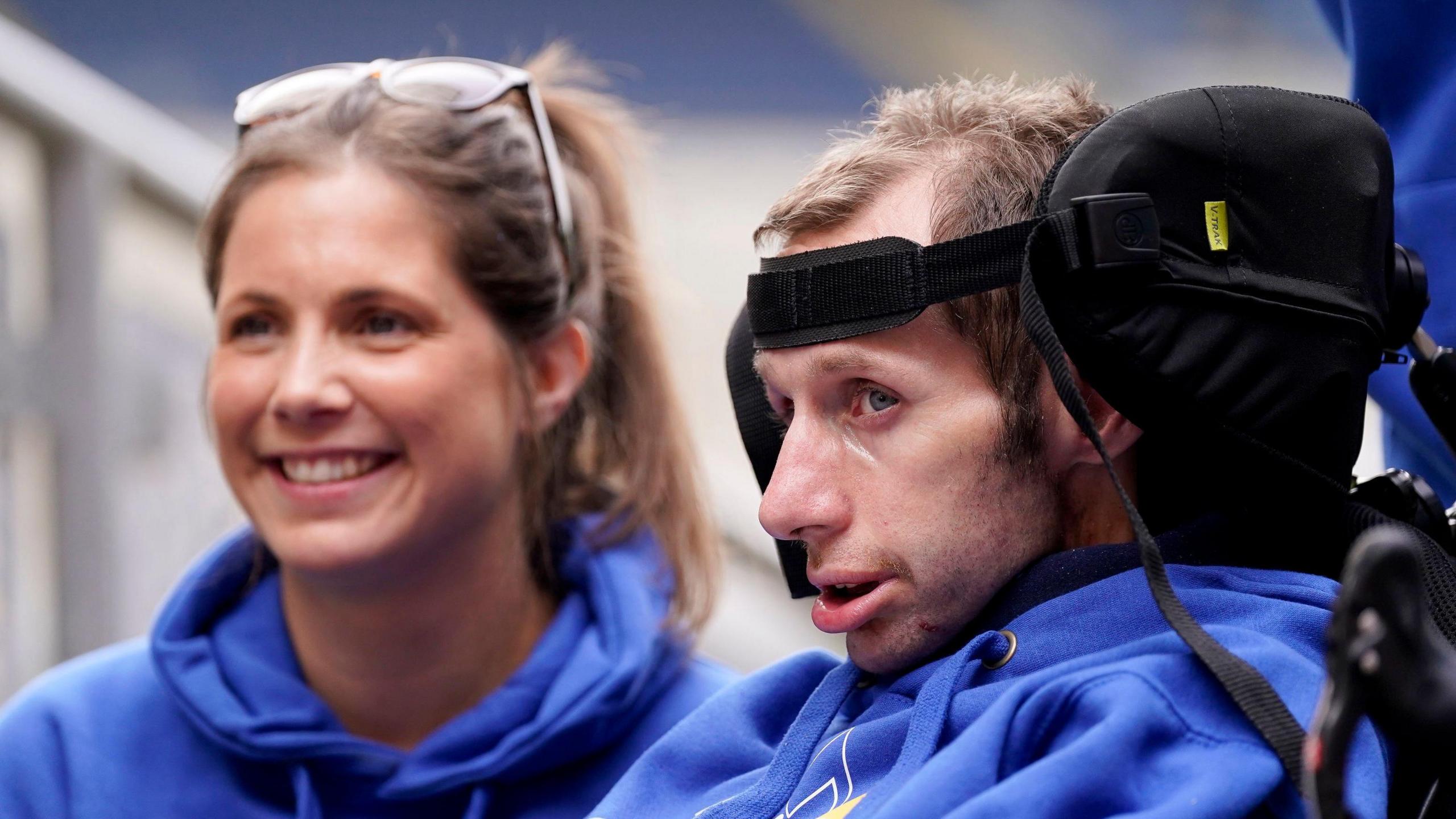Man lost mum, sister, aunt and grandma to MND
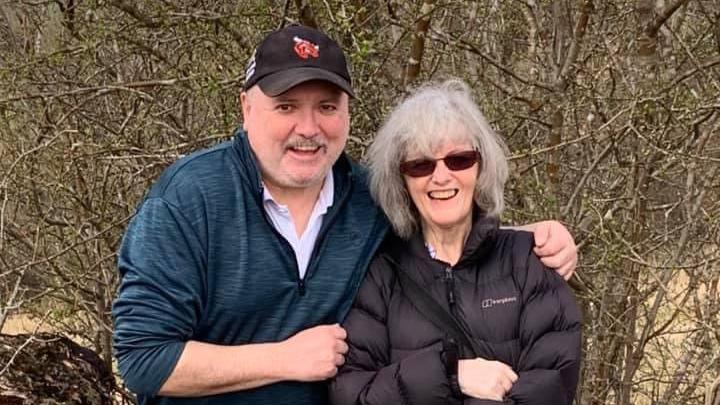
Ian Guy's sister, Nicola, has also been diagnosed with MND
- Published
A man who lost four family members to the same disease that killed rugby player Rob Burrow has said he "takes each day as it comes".
Ian Guy's mother, sister, aunt and grandmother all had motor neurone disease (MND), and his brother and sister have now been diagnosed.
Mr Guy, 58, who also carries the inherited MND gene, has vowed to "get through it" and is undertaking his eighth annual charity walk in Gloucester, after his father died of "old age" earlier this year.
He said: "I've got the genes, I know that... but that doesn't mean it's going to trigger. I'll take each day as it comes."
He said his "middle sister" Nicola, 66, and his brother David, 71, both found out they had MND at about the same time as Burrow, who died earlier this month.
Mr Guy said: "My sister in Dorset doesn't want to know [if she has the gene], and I can understand that.
"I kind of regret it myself now but I'm not going to worry about it."
Burrow, who was 41, had lived with MND since being diagnosed in late 2019.
Along with his friend Kevin Sinfield, he relentlessly fundraised and raised awareness of the disease.
Mr Guy himself has raised £25,000 for charity so far, and said this year he would "shake tins" for the Severn Area Rescue Association - a volunteer lifeboat and inland search and rescue charity that operates along the River Severn.
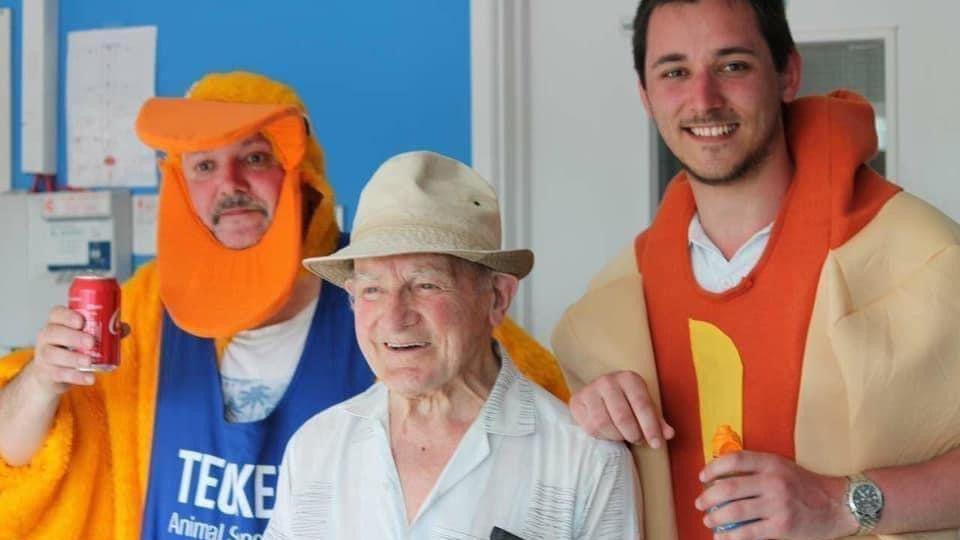
Ian Guy said his dad Geoff was his "biggest supporter"
Speaking to BBC Radio Gloucestershire, he said the disease had affected his family members in different ways.
His mother Peggy had been climbing Ben Nevis - the highest mountain in Scotland - in August 1998, but her disease developed quickly and she died four months later at the age of 62.
"My sister Linda, she moved to Woolacombe in the end to get away from everybody," Mr Guy said.
"She didn't want people to see her suffer and I think with her it was like a year and a half [until she died]."
Linda, who was Mr Guy's eldest sister, died 10 years ago, aged 59.
What is MND?
MND affects nerves found in the brain and spinal cord, which tell your muscles what to do. This leads them to weaken and stiffen over time and usually affects how you walk, talk, eat and breathe.
It is a relatively rare condition which is most common in people over 50, but adults of any age can be affected. More than half of those affected die within two years of being diagnosed.
A person's lifetime risk of developing MND is one in 300. About 5,000 adults in the UK will have the disease at any one time.
Scientists are not sure what causes MND, but it is likely to be a combination of the genes - or biological traits - you get from your parents when you are born, and other lifestyle factors.
For up to one in 10 people with MND, specific genes play a much larger role. There is usually a family history of the disease in these cases.
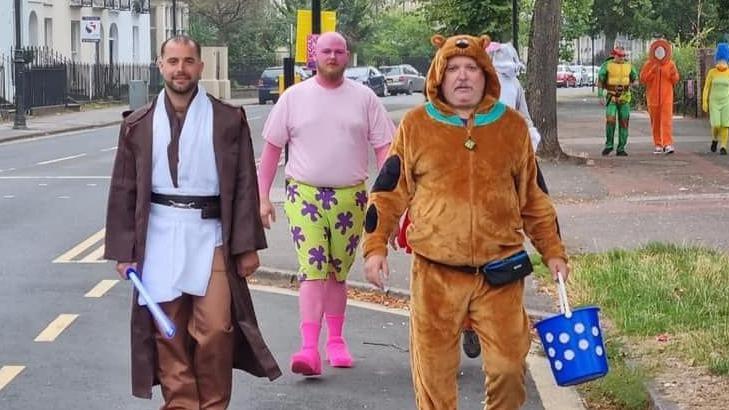
Ian Guy (R) said his fundraising helps him cope with his situation
Talking about how he "gets by", Mr Guy said: "I'm lucky, at work, they keep me going with what's going on and there's a good crew there - but it's when I'm on my own.
"My dad passed away in January and I was caring for him and now he's gone and I'm at home at night, that's when you start thinking about the past a little bit more and it does hurt but you've got to get through it.
"Fundraising is part of it. These walks we do."
Mr Guy, along with a group of his friends, known as Two Guys and A Bull, will set off on his eighth fancy dress fundraising walk in August in honour of his father Geoff, who he said was his "biggest supporter".
Mr Guy walked for the Motor Neurone Disease Association last year, but said they had chosen to support the "great" Severn Area Rescue Association this year.
'Public are incredible'
He said the "public are incredible" during his challenges, adding a woman was once brought to tears and offered cash as they went past her home, while another chased them down the street with ice cream.
In the past Mr Guy has dressed as tequila bottles, Scooby-Doo and even Freddie Mercury for the walks.
The event on 25 August begins in Gloucester and follows the canal down to Whitminster and finally Sharpness, where the charity is holding an open day.
Follow BBC Gloucestershire on Facebook, external, X, external and Instagram, external. Send your story ideas to us on email or via WhatsApp on 0800 313 4630.
- Published3 June 2024
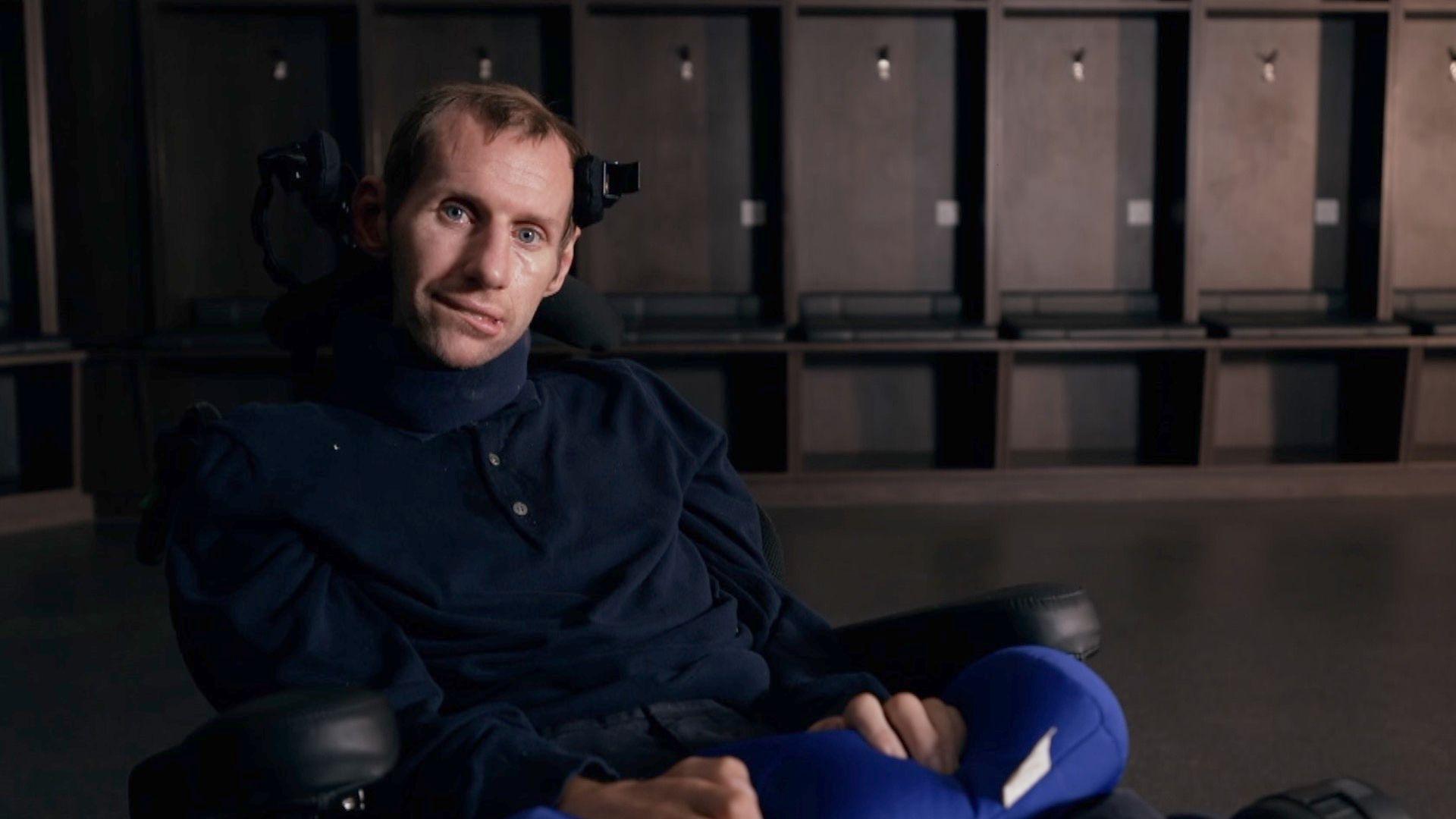
- Attribution
- Published11 June 2024
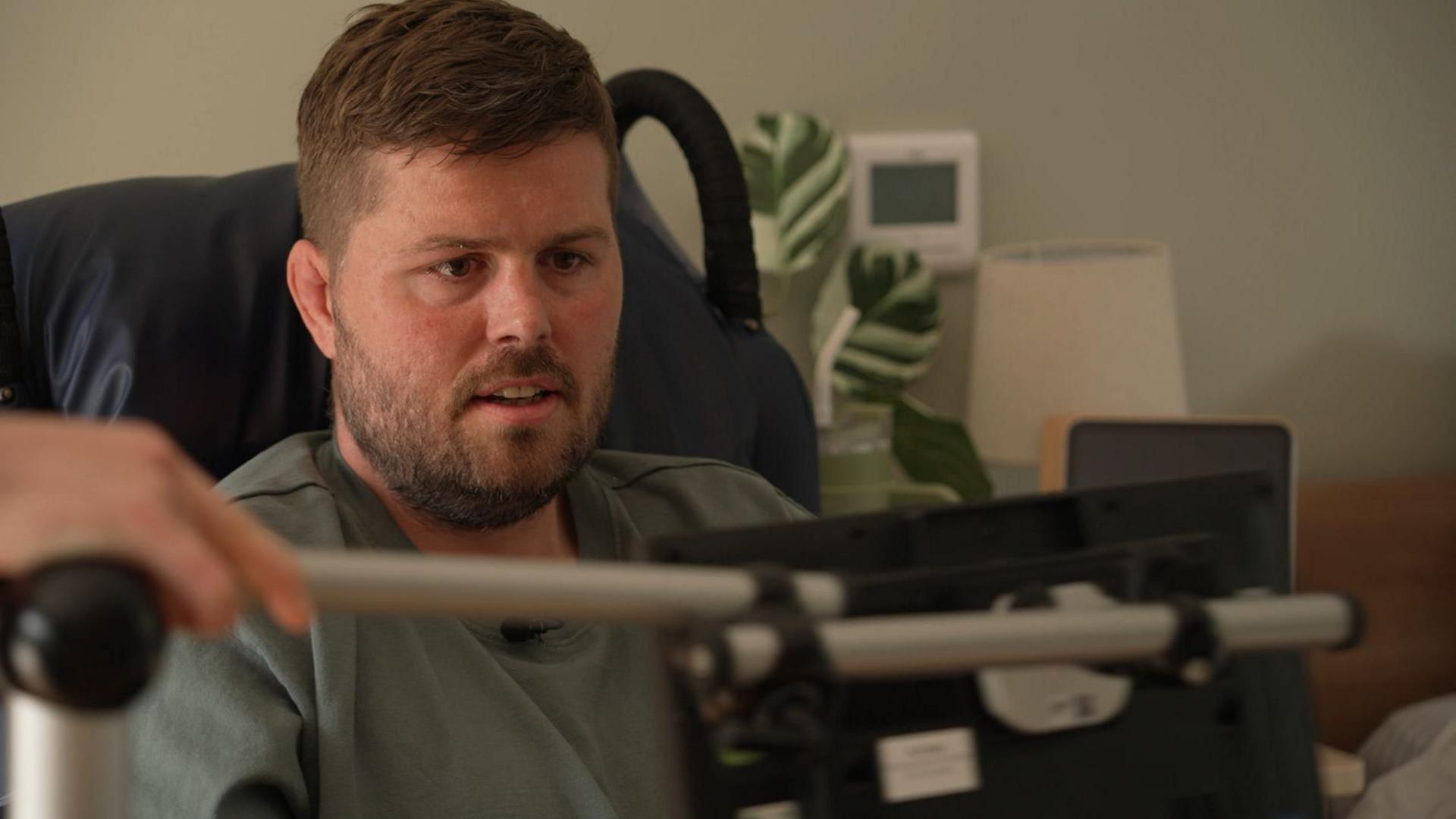
- Published3 June 2024
